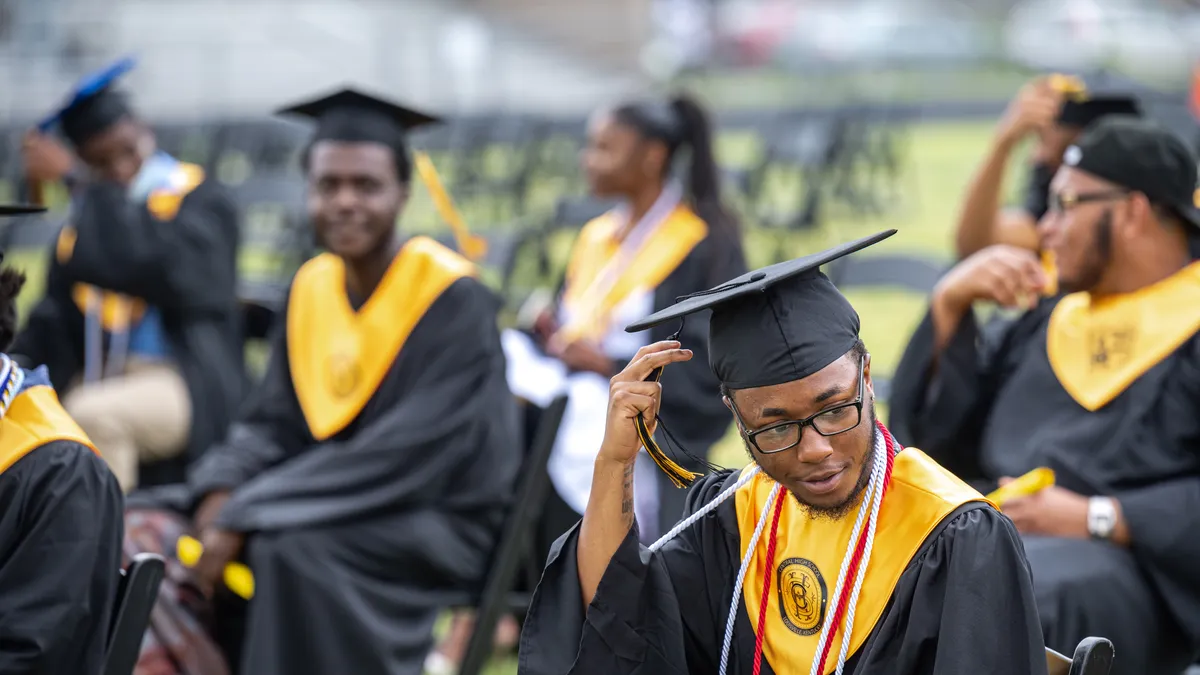Dive Brief:
- Although students at all grade levels have been adversely impacted by the pandemic and need recovery supports, one education expert suggests school systems should pay special attention to high schoolers over the next five years as they prepare for graduation.
- Limited research on secondary students shows pandemic-era setbacks for them in academic performance, school attendance and mental wellbeing. This indicates these older students need extra help and guidance, according to Robin Lake, director of the Center for Reinventing Public Education.
- States and districts can better help high schoolers prepare for careers and colleges by researching and reporting student progress, using innovative approaches for academic and mental health supports, and focusing on individual needs, Lake recommended. "We've got some time to work with the little kids, but the clock is ticking for the older kids," Lake said.
Dive Insight:
Much of the research focusing on academic impacts from the pandemic centers on grades 3-8 because students in those grades typically participate in statewide assessments.
Yet the little data available on high schoolers' progress is not encouraging, Lake said. An analysis of spring 2021 Ohio state assessments from The Ohio State University revealed below-expected drops in high school math scores. Research into academic performance of North Carolina students shows a 16.1 percentage point drop in Math 1 proficiency for students in grades 9-12 from 2018-19 to 2020-21.
In addition to academic declines, the pandemic created or exacerbated insecurity in economic, food, nutrition and housing and also negatively affected teenagers' health and well-being, a Centers for Disease Control and Prevention survey from January-June 2021 found. Other adverse experiences included emotional and physical abuse and disruptions to school work.
Limited access to social events and extracurricular activities during the pandemic also caused feelings of loneliness, stress and anxiety for high school students during the early months of the pandemic, according to a posting from Child & Adolescent Behavioral Health, a nonprofit resource center based in Canton, Ohio.
"For most students school isn’t just about academics, it is also about social interactions," the posting said. "Many friendships started by sitting next to each other in class".
Strategies for engaging and supporting high school students may include new approaches for career and technical education or "grow your own" opportunities, including hiring students to work with younger students or fill custodial roles in schools. Efforts could also include collaborating with community partners to expand access to mental health resources, Lake said.
"I think we have to start thinking creatively about how to meet all kids' needs," Lake said.
"Schools shouldn't have to be responsible for solving the complexity of every high schoolers' needs. It should be the case that we are developing really, really strong partnerships."













